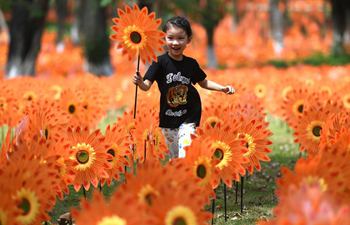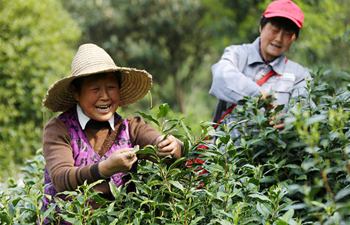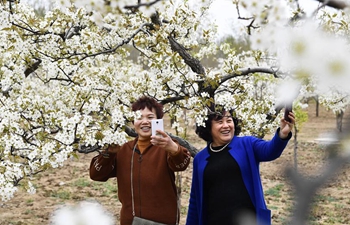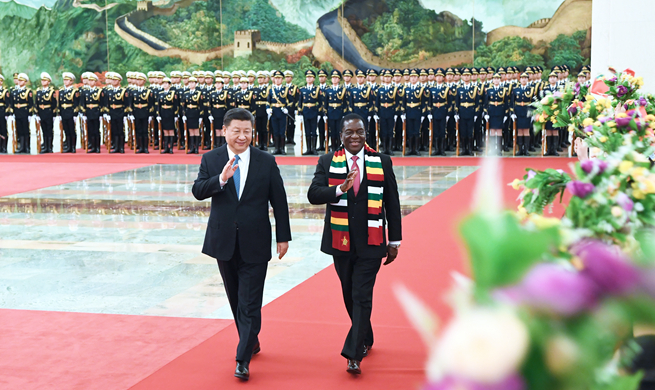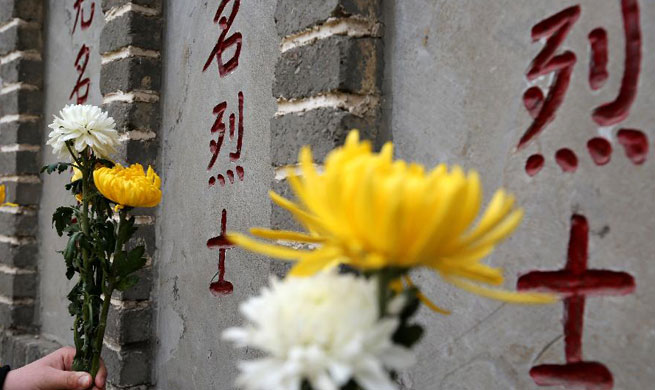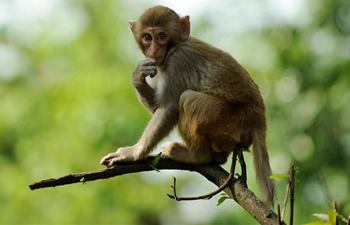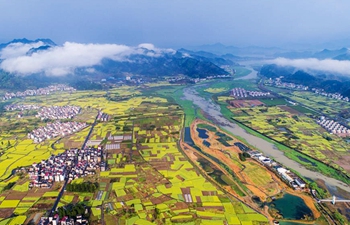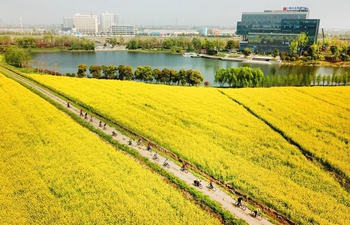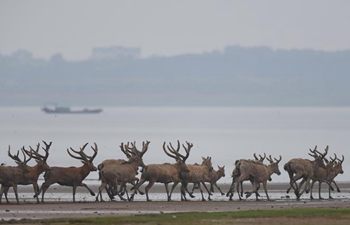By Levi J Parsons
SYDNEY, April 5 (Xinhua) -- Back in 2016, the Sydney Opera House showcased a dramatic series of light art exhibitions as part of the harbour city's Vivid Festival.
For tourists and locals alike, the mysterious Aboriginal imagery projected onto the sails of the iconic building was something truly unique and highlighted how one of the world's most ancient cultures is transforming a traditional artform for a modern, global audience.
The display was so popular that the opera house decided to bring the exhibition to visitors all the year round.
"Quite often we think of Indigenous art as being really traditional, but it can be very contemporary as well," director of visitor experience at the Sydney Opera House Jade McKellar told Xinhua.
Meaning "water light" in the traditional language of the Gadigal people, the Badu Gili exhibition is a nightly seven minute piece designed to honour the rich indigenous culture of Australia in a cutting-edge, futuristic medium.
"Our head of Indigenous programming Rhoda Roberts, selected five really special and talented artists from Australia and the Torres strait and she has taken their artwork that talks about their land, their water and their culture and worked with an artistic company to animate and really bring those stories to life," McKellar said.
Although visually spectacular, the most important aspects of the Indigenous art centre around cultural storytelling imagines the creation of land, sea and sky. "These are called 'dreamtime' stories and they go back for thousands of years, passed from generations," Reno Safarian, manager at one of Australia's revered Indigenous art dealerships Spirit Gallery explained.
"You earn that story from your tribal or family group, therefore you paint that story."
"Some artists have one dreamtime story and they paint that same style, some artists have two or three and they have two or three different styles."
While tourist attractions like koala bears, beaches and selfies and the Sydney Harbour Bridge remaining atop most Chinese travellers to do list, more and more seasoned visitors are branching out to get a deeper understanding of Australian culture.
According to the opera house's own internal research, 30 percent of Chinese visitors who travel down under fit into this category and are looking for some kind of Indigenous cultural experience in Australia.
"We have seen a steady increase of Chinese buying larger pieces of artwork and there are actually some Chinese musicians that enjoy playing the Indigenous Australian instrument called the didgeridoo," Safarian said.
So encouraged by the recent influx of interested Chinese travelers, Safarian's Spirit Gallery has began accepting Chinese e-commerce platforms like WeChat Pay and Alipay.
"At first there is probably a bit of confusion because there are so many colours and styles and so many different techniques and forms, but once we explain to them the history of Aboriginal arts, they start to appreciate it," he said.
With colours derived from ochres such as clay, charcoal and red earth, indigenous paintings have traditionally been known for their distinct earthy tones.
"We had oranges, yellows, black from charcoal and whites from clay, but now lots of the artists use modern paints so we have greens and blues, so there is a bit of the old and the new being mixed together," Safarian said.
"The artwork is traditional but it's evolving, it's changing, so we have a whole range of styles and colours."





